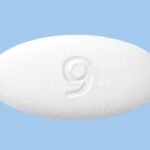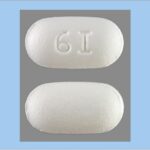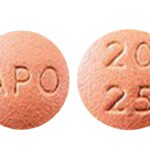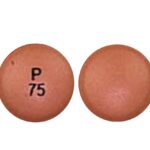R 196 Pill: Uses, Dosage, Side Effects, Warnings
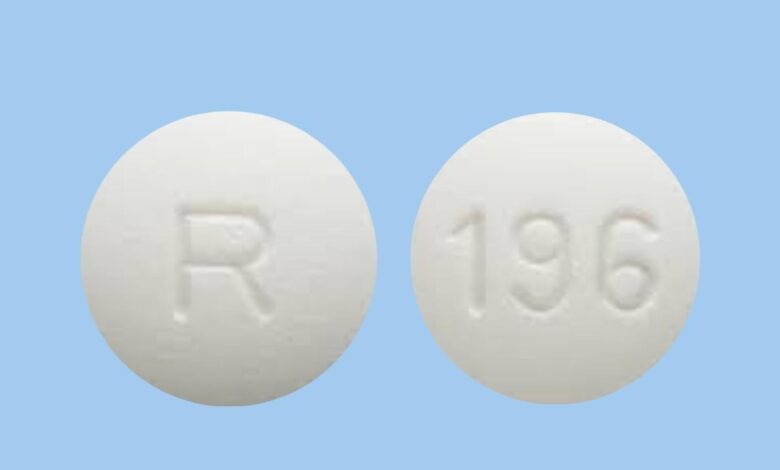
The white, round pill with the imprint R 196 has been identified as Clopidogrel Bisulfate 75 mg (base). It is supplied by Dr. Reddy’s Laboratories, Inc.. R 196 pill is used alone or with aspirin to prevent serious or life-threatening problems with the heart and blood vessels in people who have had a stroke, heart attack, or severe chest pain. This includes people who have percutaneous coronary intervention (PCI; angioplasty; a type of heart surgery) that may involve inserting coronary stents (metal tubes surgically placed in clogged blood vessels to improve blood flow) or who have coronary artery bypass grafting (CABG; a type of heart surgery).
Clopidogrel is also used to prevent serious or life-threatening problems with the heart and blood vessels in people who have peripheral arterial disease (poor circulation in the blood vessels that supply blood to the legs). Clopidogrel is in a class of medications called antiplatelet medications. It works by preventing platelets (a type of blood cell) from collecting and forming clots that may cause a heart attack or stroke.
What should I tell my health care provider before I take R 196 pill?
They need to know if you have any of the following conditions:
• bleeding disorders
• bleeding in the brain
• having surgery
• history of stomach bleeding
• an unusual or allergic reaction to clopidogrel, other medicines, foods, dyes, or preservatives
• pregnant or trying to get pregnant
• breast-feeding
How should I take R 196 pill?
Take R 196 pill by mouth with a glass of water. Follow the directions on the prescription label. You may take this medicine with or without food. If it upsets your stomach, take it with food. Take your medicine at regular intervals. Do not take it more often than directed. Do not stop taking except on your doctor’s advice.
A special MedGuide will be given to you by the pharmacist with each prescription and refill. Be sure to read this information carefully each time.
Talk to your pediatrician regarding the use of this medicine in children. Special care may be needed.
Overdosage: If you think you have taken too much of Clopidogrel, contact a poison control center or emergency room at once.
NOTE: This medicine is only for you. Do not share this medicine with others.
What if I miss a dose?
If you miss a dose, take it as soon as you can. If it is almost time for your next dose, take only that dose. Do not take double or extra doses.
What may interact with R 196 pill?
Do not take this medicine with the following medications:
• dasabuvir; ombitasvir; paritaprevir; ritonavir
• defibrotide
• selexipag
This medicine may also interact with the following medications:
• certain medicines that treat or prevent blood clots like warfarin
• narcotic medicines for pain
• NSAIDs, medicines for pain and inflammation, like ibuprofen or naproxen
• repaglinide
• SNRIs, medicines for depression, like desvenlafaxine, duloxetine, levomilnacipran, venlafaxine
• SSRIs, medicines for depression, like citalopram, escitalopram, fluoxetine, fluvoxamine, paroxetine, sertraline
• stomach acid blockers like cimetidine, esomeprazole, omeprazole
This list may not describe all possible interactions. Give your health care provider a list of all the medicines, herbs, non-prescription drugs, or dietary supplements you use. Also tell them if you smoke, drink alcohol, or use illegal drugs. Some items may interact with your medicine.
What should I watch for while using this medicine?
Visit your doctor or health care professional for regular check-ups. Do not stop taking your medicine unless your doctor tells you to.
Notify your doctor or health care professional and seek emergency treatment if you develop breathing problems; changes in vision; chest pain; severe, sudden headache; pain, swelling, warmth in the leg; trouble speaking; sudden numbness or weakness of the face, arm or leg. These can be signs that your condition has gotten worse.
If you are going to have surgery or dental work, tell your doctor or health care professional that you are taking this medicine.
Certain genetic factors may reduce the effect of this medicine. Your doctor may use genetic tests to determine treatment.
Only take aspirin if you are instructed to. Low doses of aspirin are used with this medicine to treat some conditions. Taking aspirin with this medicine can increase your risk of bleeding so you must be careful. Talk to your doctor or pharmacist if you have questions.
What are the side effects of R 196 pill?
Side effects that you should report to your doctor or health care professional as soon as possible:
• allergic reactions like skin rash, itching or hives, swelling of the face, lips, or tongue
• signs and symptoms of bleeding such as bloody or black, tarry stools; red or dark-brown urine; spitting up blood or brown material that looks like coffee grounds; red spots on the skin; unusual bruising or bleeding from the eye, gums, or nose
• signs and symptoms of a blood clot such as breathing problems; changes in vision; chest pain; severe, sudden headache; pain, swelling, warmth in the leg; trouble speaking; sudden numbness or weakness of the face, arm or leg
• signs and symptoms of low blood sugar such as feeling anxious; confusion; dizziness; increased hunger; unusually weak or tired; increased sweating; shakiness; cold, clammy skin; irritable; headache; blurred vision; fast heartbeat; loss of consciousness
Side effects that usually do not require medical attention (report to your doctor or health care professional if they continue or are bothersome):
• constipation
• diarrhea
• headache
• upset stomach
This list may not describe all possible side effects. Call your doctor for medical advice about side effects. You may report side effects to FDA at 1-800-FDA-1088.
Where should I keep my medicine?
Keep out of the reach of children.
Store at room temperature of 59 to 86 degrees F (15 to 30 degrees C). Throw away any unused medicine after the expiration date.
NOTE: This sheet is a summary. It may not cover all possible information. If you have questions about this medicine, talk to your doctor, pharmacist, or health care provider.

